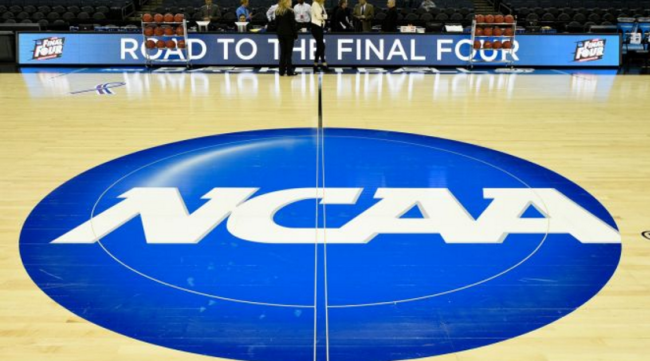You have /5 articles left.
Sign up for a free account or log in.

A federal judge on Friday ruled that the National Collegiate Athletic Association and its members had violated federal antitrust law by artificially capping the value of scholarships for educational purposes -- but stopped well short of creating the kind of free market for athletes' compensation that the players and their lawyers had sought.
The ruling by U.S. District Court Judge Claudia Wilken -- whose 2014 decision in a related case began the slow chipping away of the NCAA's limits on colleges' support for athletes -- is a clear court loss for the association. But lawyers for the athletes also got far less than they wanted: a toppling of the "amateur" athlete model by which the NCAA has for decades limited compensation to athletes to a scholarship and slowly expanding associated benefits.
The plaintiffs, a group of current and former Division I men's and women's basketball players and athletes who played football at universities in the Football Bowl Subdivision, alleged that the NCAA's complex rules -- approved and carried out by the member colleges and conferences -- unfairly restrict what the players could reasonably get in exchange for their athletic talents in an open market.
The association argued, as it has for decades, that the rules restricting compensation have maintained a form of "amateurism" that sustains public support for the college sports enterprise, and that requiring athletes to be students (and compensating them as such) helps integrate them into their campuses.
In her ruling, Judge Wilken in many ways split the difference. She supported the NCAA's argument for continuing to restrict compensation and benefits that are unrelated to education (i.e., payments for sports-related performance), but concluded that the NCAA's amateurism model (which she described as "circular") does not justify the limitations on the education-related benefits that the NCAA currently maintains.
The plaintiffs proposed three possible alternatives to the current system, two of which the judge rejected as creating problems of their own. The first, to lift all NCAA limits on compensation for athletes, would "open the possibility that at least some conferences would allow their schools to offer student-athletes unlimited cash payments that are unrelated to education" -- little different from how the professional leagues operate, Wilken wrote.
Much the same result, Wilken wrote, could occur from a system in which the NCAA continued to limit education-related compensation but could not limit payments unrelated to education.
Instead, she endorsed an approach in which the association continues to limit the value of an athletic scholarship to the cost of attendance and to restrict compensation and benefits unrelated to education, but generally does not limit education-related benefits. Her opinion lists a set of "education-related" benefits that the ruling bars the NCAA and its colleges from restricting, including “computers, science equipment, musical instruments and other tangible items not included in the cost of attendance calculation but nonetheless related to the pursuit of academic studies.”
Wilken also said the NCAA would be enjoined from restricting "post-eligibility scholarships to complete undergraduate or graduate degrees at any school; scholarships to attend vocational school; expenses for pre- and post-eligibility tutoring; expenses for studying abroad that are not covered by the cost of attendance; and paid post-eligibility internships."
The ruling also notes that the list could also be amended by a court-approved motion of the NCAA or the players.
In a statement Friday night, the NCAA's chief legal officer, Donald Remy, criticized the court's ruling but acknowledged, without directly saying so, that it could have been a lot worse for the association. "The court’s decision recognizes that college sports should be played by student-athletes, not by paid professionals. The decision acknowledges that the popularity of college sports stems in part from the fact that these athletes are indeed students, who must not be paid unlimited cash sums unrelated to education. NCAA rules actively provide a pathway for tens of thousands of student-athletes each year to receive a college education debt-free."
Michael McCann, a sports law expert and associate dean of the law school at the University of New Hampshire, said in a column in Sports Illustrated that the main outcome of Wilken's ruling would be to crank up the competition among universities and conferences over the value of the sports scholarship.
"Schools that already compete for recruits in myriad ways -- spending many millions of dollars to fund top coaches’ salaries, constructing new stadiums, building state-of-the-art training facilities -- will be able to compete in one additional way: by offering athletic scholarships of higher value," he wrote.
McCann noted that the ruling could have a slew of implications for colleges and their sports programs, including possibly creating Title IX issues that could require institutions to increase their scholarship spending for female athletes if they do so for men.





